7 Herbs Help To Get Rid Of The Flu Quickly At Home
What is the flu? How to get rid of the flu quickly?
The flu, short for influenza, is a contagious respiratory illness caused by influenza viruses. It can lead to mild to severe symptoms and, in some cases, complications that can be life-threatening, especially in vulnerable populations such as young children, older adults, and individuals with certain underlying health conditions. Recognizing the signs of flu and incorporating specific vegetables and spices into your diet can help support the immune system and aid in the treatment of flu symptoms.
When you have the flu you will have some of symptoms such as:
- Fever
- Chills
- Cough
- Sore throat
- Runny or stuffy nose
- Body aches
- Fatigue
- Headache
- Vomiting and diarrhea (more common in children)
The flu virus spreads primarily through respiratory droplets when infected individuals cough, sneeze, or talk. You can also contract the virus by touching contaminated surfaces and then touching your mouth, nose, or eyes.
Herbs to rid of the flu quickly
Incorporating certain vegetables and spices into your diet can provide essential nutrients and compounds that support the immune system and help alleviate flu symptoms.
1. Garlic:
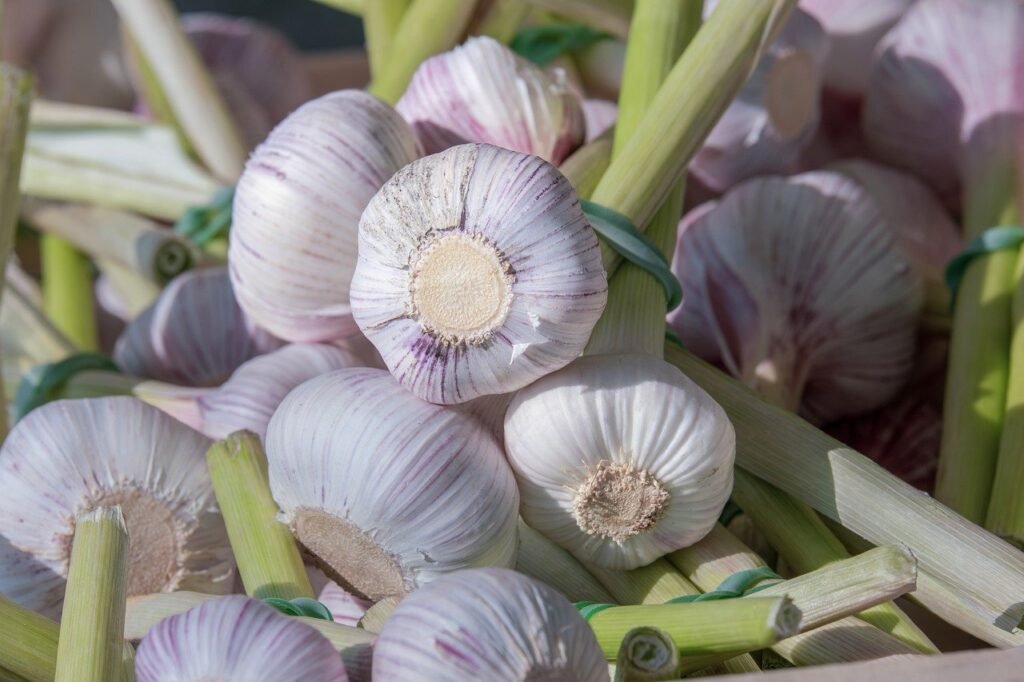
Garlic is well-known for its immune-boosting properties due to its high content of sulfur-containing compounds like allicin. It exhibits antiviral and antibacterial effects, which can help combat infections like the flu.
2. Ginger:
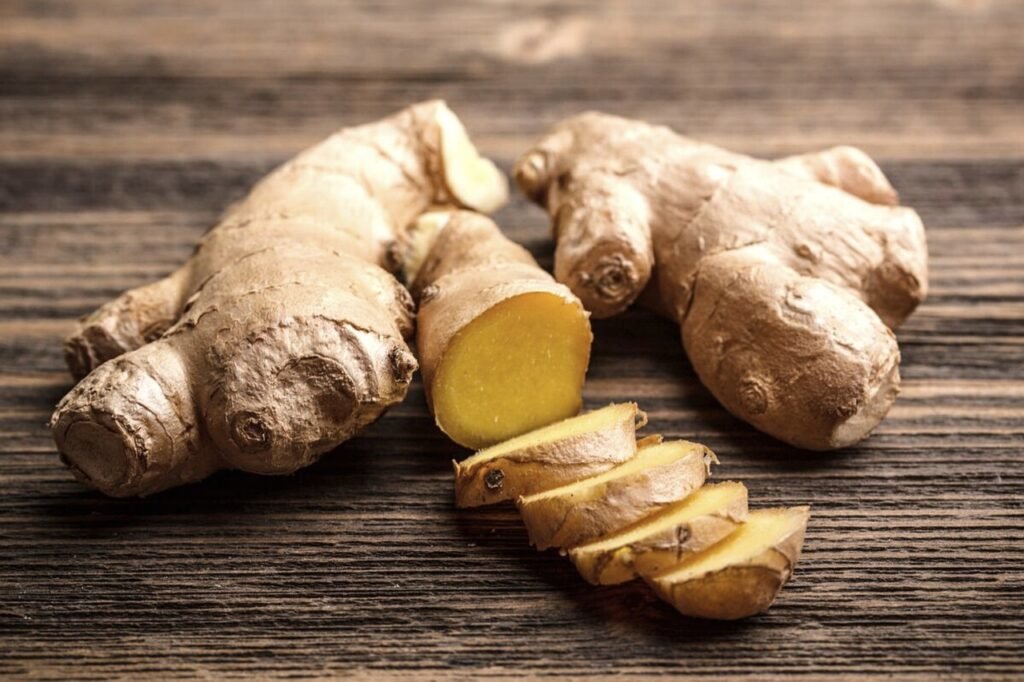
Ginger is anti-inflammatory and can help soothe a sore throat and reduce nausea associated with flu. It also supports digestion and overall immune function.
3. Turmeric:
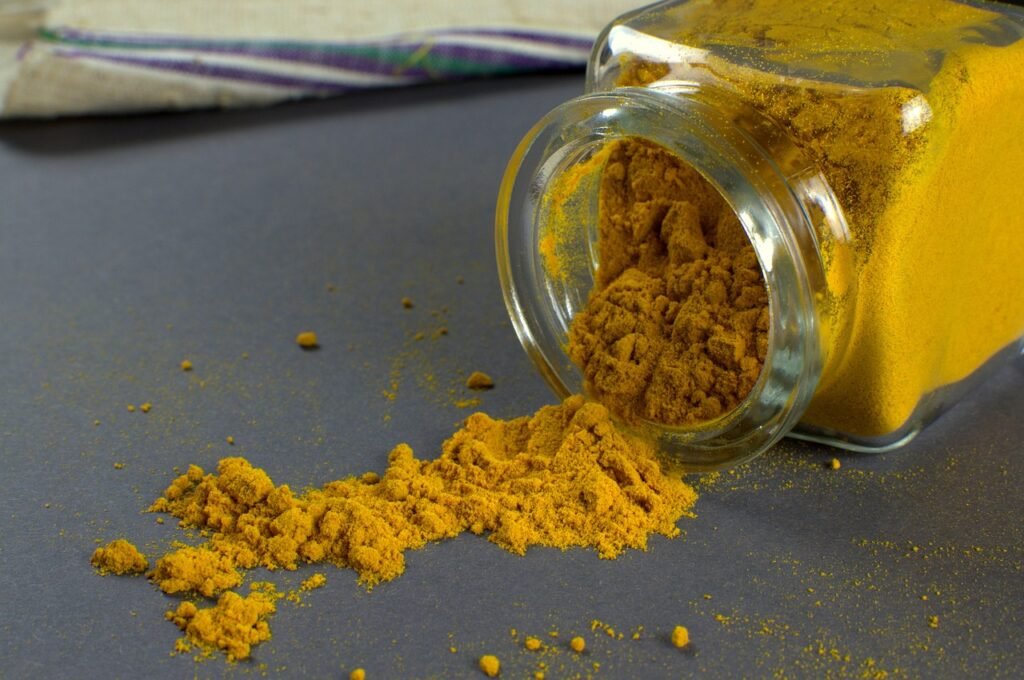
Turmeric contains curcumin, a potent anti-inflammatory and antioxidant compound. Adding turmeric to warm milk or soups can help reduce inflammation and support immune health.
4. Onion:
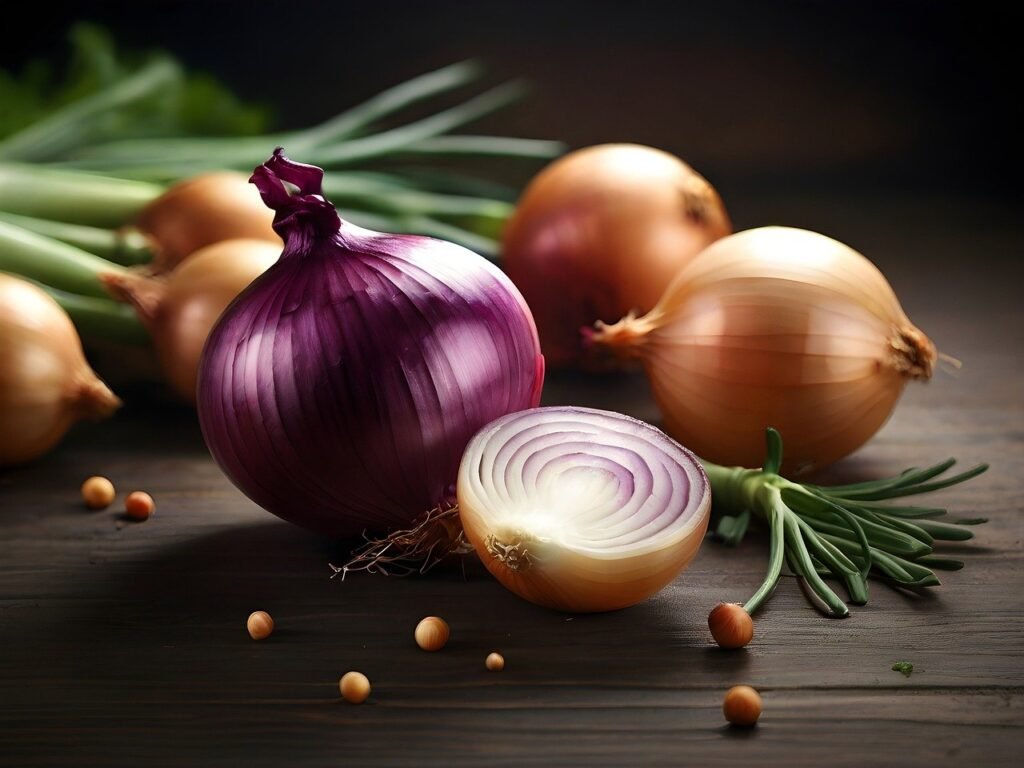
Onions contain potent antibacterial properties. When experiencing a cold, headache, or nasal congestion, you can use crushed onions with boiling water for steam inhalation, or add onions to hot porridge to help recover quickly.
5. Perilla leaves:
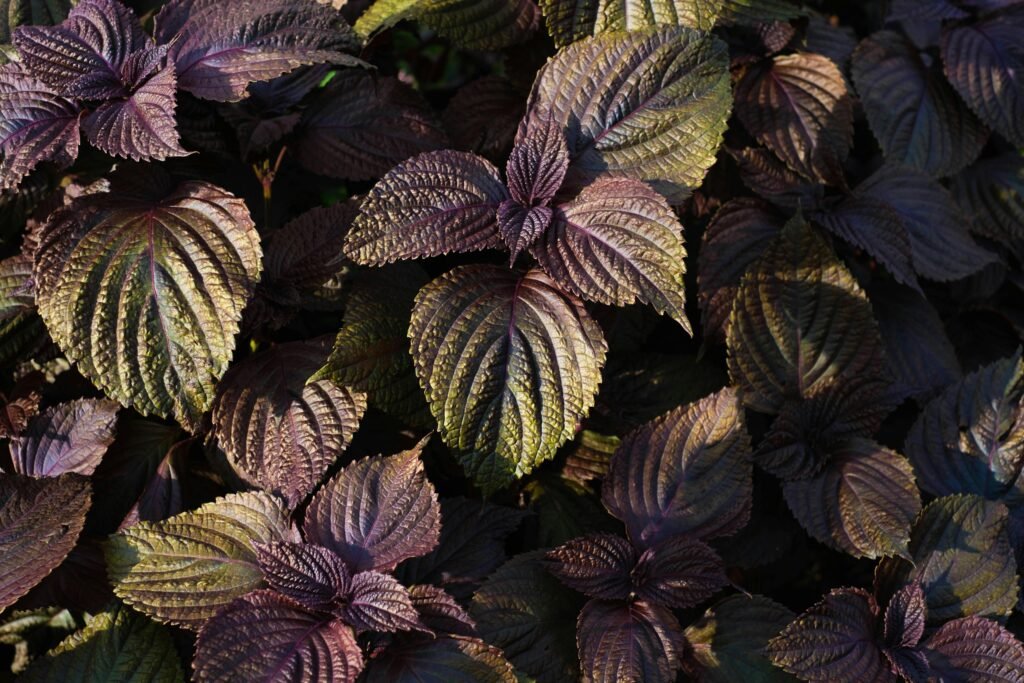
Perilla leaves contain abundant essential oils and antioxidant and anti-inflammatory compounds. Modern medicine recognizes their effectiveness in reducing fever, inflammation, pain, and anxiety when used appropriately.
To treat colds and flu, perilla leaves can be ground into a fine powder and taken at a dosage of 6-8 grams when experiencing symptoms.
Alternatively, you can prepare perilla congee by boiling perilla leaves, removing the residue, and adding 50 grams of brown rice and 50 grams of mung beans to cook into a gruel. Consume this congee 2-3 times a day to prevent summer colds and clear heat.
6. Basil:
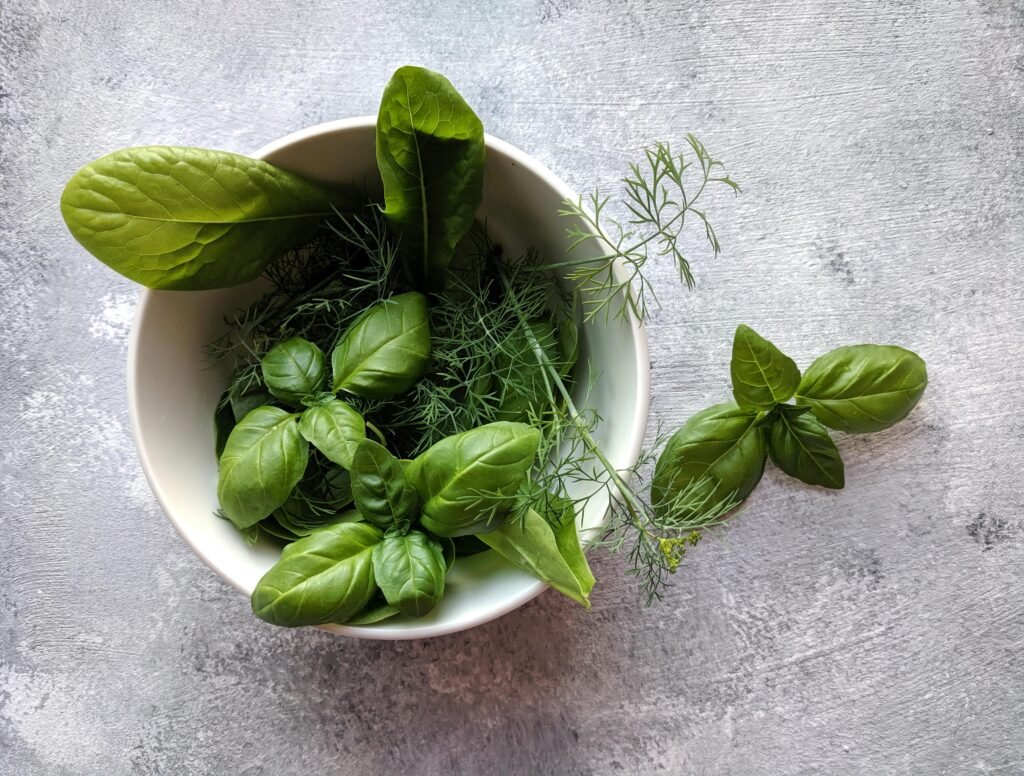
The entire basil plant contains 0.5% essential oil. Basil leaves induce sweating, treat coughs, colds, aid digestion, reduce pain, and detoxify.
Eating hot basil porridge (by finely chopping basil leaves with onions and mixing into porridge) is also a way to relieve heat-induced symptoms.
7. Lemon balm:

Lemon balm has a spicy and slightly sour taste, warming properties, and is used to dispel phlegm, relieve colds, clear heat, and detoxify. Lemon balm is used to treat colds, asthma, high fever with no sweating, sore throat, colds, and loss of voice.
You can use fresh lemon balm alone or in combination with other local herbs such as lemongrass leaves, grapefruit leaves, bamboo leaves, or white sandalwood leaves for steam inhalation to treat flu.
Consider incorporating these vegetables and spices into your meals To support flu treatment and boost immune health. Try adding them to soups, stir-fries, smoothies, or herbal teas for a comforting and nourishing experience. Additionally, prioritize hydration, rest, and practicing good hygiene to prevent the spread of the flu virus.
It’s essential to consult with a healthcare professional if you experience severe flu symptoms or if you have underlying health conditions that may complicate flu recovery. While these dietary additions can support immune health, they are not a substitute for medical treatment when needed. Stay vigilant, stay healthy, and prioritize wellness during flu season and beyond.

